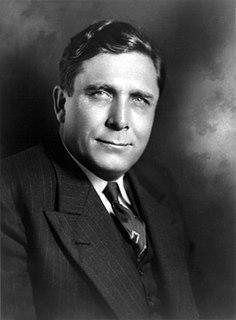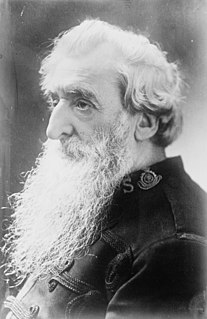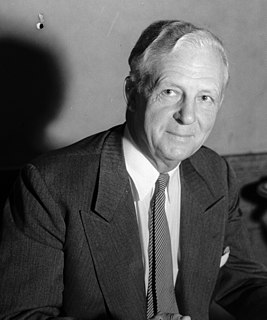A Quote by Lord Acton
Liberty, next to religion has been the motive of good deeds and the common pretext of crime, from the sowing of the seed at Athens, 2,460 years ago, until the ripened harvest was gathered by men of our race. It is the delicate fruit of a mature civilization; and scarcely a century has passed since nations, that knew the meaning of the term, resolved to be free. In every age its progress has been beset by its natural enemies, by ignorance and superstition, by lust of conquest and by love of ease, by the strong man's craving for power, and the poor man's craving for food.
Quote Topics
Age
Athens
Been
Century
Civilization
Common
Conquest
Craving
Crime
Deeds
Delicate
Ease
Enemies
Every
Food
Free
Fruit
Good
Good Deed
Good Deeds
Harvest
Ignorance
Knew
Liberty
Love
Lust
Man
Mature
Meaning
Meaning Of
Men
Motive
Nations
Natural
Natural Enemies
Next
Our
Passed
Poor
Poor Man
Power
Pretext
Progress
Race
Religion
Resolved
Scarcely
Seed
Since
Sowing
Strong
Strong Man
Superstition
Term
Until
Years
Years Ago
Related Quotes
How frequent, how constant ought we to be, like Christ Jesus our example, in doing good, especially to the souls of men and especially to the household of faith (yea, even to our enemies), when we remember that this is our seed time, of which every minute is precious, and that as our sowing is, so shall be our eternal harvest.
It is often said it is no matter what a man believes if he is only sincere. This is true of all minor truths, and false of all truths whose nature it is to fashion a man's life. It will make no difference in a man's harvest whether he thinks turnips have more saccharine matter than potatoes--whether corn is better than wheat. But let the man sincerely believe that seed planted without ploughing is as good as with, that January is as favorable for seed sowing as April, and that cockle seed will produce as good a harvest as wheat, and will it make no difference?
The intellectual part of religion is a private affair between every man and his Maker, and in which no third party has any right to interfere. The practical part consists in our doing good to each other. But since religion has been made into a trade, the practical part has been made to consist of ceremonies performed by men called priests ... By devices of this kind true religion has been banished, and such means have been found out to extract money, even from the pockets of the poor, instead of contributing to their relief.
The truth is that there are no good men, or bad men,' he said. 'It is the deeds that have goodness or badness in them. There are good deeds, and bad deeds. Men are just men - it is what they do, or refuse to do, that links them to good and evil. The truth is that an instant of real love, in the heart of anyone - the noblest man alive or the most wicked - has the whole purpose and process and meaning of life within the lotus-folds of its passion. The truth is that we are all, every one of us, every atom, every galaxy, and every particle of matter in the universe, moving toward God.
Our way of living together in America is a strong but delicate fabric. It is made up of many threads. It has been woven over many centuries by the patience and sacrifice of countless liberty-loving men and women. It serves as a cloak for the protection of poor and rich, of black and white, of Jew and Gentile, of foreign and native born. Let us not tear it asunder. For no man knows, once it is destroyed, where or when man will find its protective warmth again.
Oh, that's typical of you modern young men; you've nibbled at science and it's made you ill, because you've not been able to satisfy that old craving for the absolute that you absorbed in your nurseries. You'd like science to give you all the answers at one go, whereas we're only just beginning to understand it, and it'll probably never be anything but an eternal quest. And so you repudiate science, you fall back on religion, and religion won't have you any more. Then you relapse into pessimism...Yes, it's the disease of our age, of the end of the century: you're all inverted Werthers.
We have to recognise, that the gin-palace, like many other evils, although as poisonous, is still a natural outgrowth of our social conditions. The tap-room in many cases is the poor man's only parlour. Many a man takes to beer, not from the love of beer, but from a natural craving for the light, warmth, company, and comfort which is thrown in along with the beer, and which he cannot get excepting by buying beer. Reformers will never get rid of the drink shop until they can outbid it in the subsidiary attractions which it offers to its customers.
Man has bought brains, but all the millions in the world have failed to buy love. Man has subdued bodies, but all the power on earth has been unable to subdue love. Man has conquered whole nations, but all his armies could not conquer love. Man has chained and fettered the spirit, but he has been utterly helpless before love. Thus love has the magic power to make of a beggar a king.
I wouldn't say that religion has promoted the social progress of mankind. I say that it has been a detriment to the progress of civilization, and I would also say this: that the emancipation of the mind from religious superstition is as essential to the progress of civilization as is emancipation from physical slavery.






























